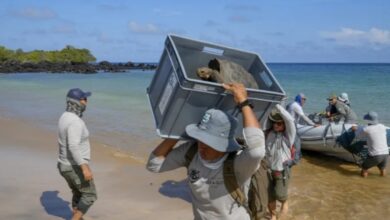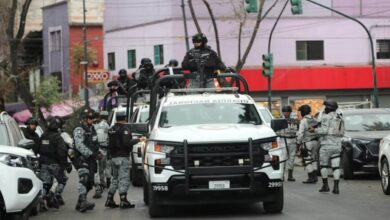Does the Colombian State comply with the Peace Agreement?
Listen this article
On Saturday, January 12, Iván Márquez, former head of the FARC, sent a video criticizing the Colombian State for breaches of the peace agreement

In the video, primarily addressed to the XXIV International Conference Rosa Luxemburg, in addition to talking about Colombia, he thanks Cuba and its revolution, and calls not to be left alone to Venezuela, which is suffering "a brutal attack by the Latin American right confabulated by the Government of Washington. "
Leer en español: ¿El Estado colombiano cumple con el acuerdo de paz?
Regarding the peace agreement, he began by describing the post-agreement scenario as "discouraging." In the 12-minute video, he talks about non-compliance with issues such as political participation, reparation of victims, the "destruction" of the Special Jurisdiction for Peace (JEP) and legal insecurity, among others. He also spoke of injustices in some of his prisoners, such as 400 guerrillas who, despite demonstrating their acceptance of the JEP, remain imprisoned, such as Simón Trinidad and Jesús Santrich.
Iván Márquez, whose whereabouts are unknown since August 2018, has been a great detractor of the post-agreement, along with alias El Paisa and alias Romaña.
Government responses
Following the video, President Iván Duque said in an interview with the radio station Oye Cali, the need for Iván Márquez to appear at the JEP personally, instead of appearing through videos or letters. He also said: "It seems to be serious that there are people who have exercised that role of being leaders of that organization and who are urging to generate that fracture and seeking to lead the country to new outbreaks of violence."
Similarly, Emilio Archila, presidential adviser for the post-conflict, said that what Marquez said in the video is not true, because the State has complied with what was agreed in the agreement: "what he is doing is not justified, and the invitation Implicit in weapons is incendiary and irresponsible, "said Archila.
Besides, Archila says that, since Márquez is "inciting the arms uprising," it is necessary that the JEP initiate a process against him for breach of the agreement. If so, it could be determined that he was expelled from the JEP, that is, that he would not be tried by transitional justice, which focuses on reparation, and it would be for ordinary justice.
Read also: It's time to eradicate coca
What Iván Márquez said
According to Emilio Archila, the affirmations noted in the video are uncertain, unpunctual and he cataloged them as "pilgrim arguments."
LatinAmerican Post presents the main statements made by Iván Márquez, in contrast to what is happening with the implementation of the agreement.
1. The ex-combatants killed
Iván Márquez affirmed that the State is not protecting the actors of the conflict, for which 400 social leaders and 85 ex-combatants have been assassinated since the agreement was signed. "The agreement was aimed at moving the weapons away from politics, but these are still being used to the physical extermination of political opponents ", says the ex-guerrilla in the video.
Although the high number of assassinated leaders is worrisome, the high councilor for the post-conflict affirmed that the majority of those who have died have been in conflicts with other actors, but not in the hands of the State. It also affirms that the more than 85 ex-guerrillas that Iván Márquez talks about have died in combats with other criminal groups.
This, in addition, is proof that there are people who have returned to criminality. In this way, he argues that the deaths do not occur within the framework of the peace agreement with the FARC, nor are they the product of a lack of protection of the State.
2. Changes in the Special Jurisdiction for Peace
One of the biggest criticisms was the changes in the JEP, which, he says, have caused the JEP to leave out "the civilian agents of the State", which for him means that the offer of truth has been eclipsed. hide the identity of the true culprits ".
In an article written by Humberto de la Calle in Colombia 2020 of El Espectador, he said that what was agreed in the JEP is constitutionally backed, although the Democratic Center launched proposals to make changes. De la Calle said at the time that "in the legal, there are constitutional rules that guarantee the stability of what was agreed. It will be up to the Constitutional Court to rule on the validity of the changes. "
In relation to this, the high councilor for the post-conflict affirmed in an interview with El Espectador that "the statutory law of transitional justice was approved in the previous legislature, the Constitutional Court gave the endorsement to this statutory law in December of this year. that just happened […] The government respects the autonomy and independence of the JEP, "referring to Márquez's accusations that the government destroyed the JEP.
One of the most controversial issues of the JEP was the submission of the Military Forces to it, because those who were against this claimed that they had acted under orders from the presidency. This was rejected from the dialogues, as the need for forgiveness implied that all parties were processed equally.
Even, for this moment, the JEP have passed military, for example, of cases of false positives. In relation to this, De la Calle said: "It is also not worth to cover oneself with a self-described patriotism to point out that it is an affront to the honor of the Public Force to mix it with guerrillas at the time of the criminal evaluation of their conduct. It's pure hollow rhetoric. The JEP is for criminals, not for heroic soldiers and police. "
3. Legal security
Márquez assures in the video that the State does not provide security for commanders or ex-combatants, so they must be the ones who fight for peace.
Emilio Archila, in addition to cataloging this as an incitement to raise arms, says that, according to reports from the United Nations Mission, in each zone where there are ex-guerrillas, there is also an army and police battalion to ensure protection and, as he says , "Has been profoundly effective".
Likewise, he affirmed that a census of ex-combatants is being carried out in order to know with determination where they are and what their needs are. Mainly, the State seeks to know what needs in the field of education and work, as well as help them get housing.
LatinAmerican Post | Juliana Suárez
Translated from "¿El Estado colombiano cumple con el acuerdo de paz?"





